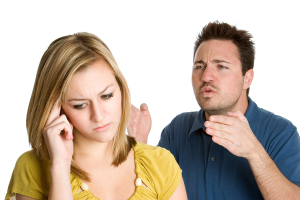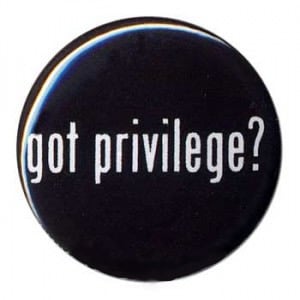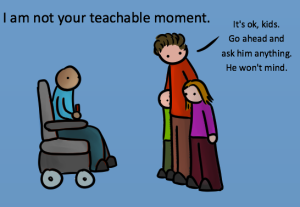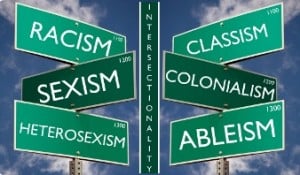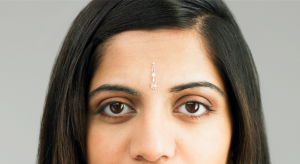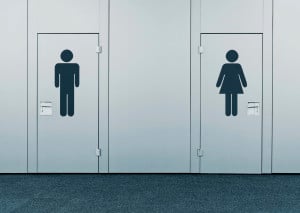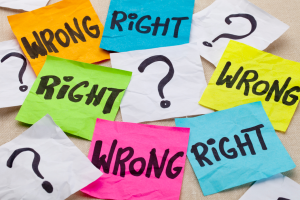Originally published on Radical Ramblings by Shiuan Butler and cross-posted here with her permission with some changes.
I have had various types of interactions with abusive men in my life, starting with my first dad and then various exes throughout the years. Some were more angry or abusive than others.
I’ve learned along the way that abusive relationships – personality disorders, a lack of conscience, extreme jealousy, bad tempers – whatever you may call it, is really much more common than people like to talk about.
Understandably it’s not a common topic of conversation. It’s not very pleasant.
We also feel stigma and shame attached to being in a relationship with an abusive person, which is unfair. Why are we to blame for loving a person who shows their abusive side to us after we fall for them?
We need to stop pretending that this isn’t happening and begin talking about it in order to better understand how to stop it.
Who Is An Abusive Person And Who Is Abused?
So first, let’s define an abusive person since many people have inaccurate conceptions of it.
Abusive people damage the other person’s self-esteem, control their behavior and independence, are disrespectful, selfish to the point of a total disregard for others and lack a conscience when behaving hurtfully. They use emotional, verbal, physical, sexual, financial, and identity abuse against their partners.
Domestic violence is inherently about the power of one over another in a romantic relationship.
So you can’t tell if someone is abused or abusive by gender expression, sexual orientation, race, size, strength, economic level, religion, or politics.
And even though we don’t talk about it, the reality is that far more people are being abused in romantic relationships than we realize.
Not sure if that’s true? Here are some stats:
- 30% of couples struggle with domestic violence of some sort.
- 85% of victims of intimate partner violence are women and 15% are men.
- On average, more than three women are murdered by their intimate partners in the USA every day.
- 1 in 4 women experience domestic violence in her lifetime.
- 1 in 4 gay men experience domestic violence.
- About 17-45% of lesbians report having been the victim of a least one act of physical violence perpetrated by a lesbian partner.
- 74% of Americans personally know someone who is or has been a victim of domestic violence.
With stats as startling as these, we all should better understand what abusive behavior looks like. That way we can stop it sooner and get out of that relationship before it worsens.
10 Different Kinds of Abusive Personalities
The abused partner often feels confused about the abusive behavior from the unpredictable ups and downs (good and bad times), manipulations, and cold and hot behavior.
So to help people who think they might be in an abusive relationship, here’s a list of different abuser’s personality styles types from Lundy Bancroft’s book, Why Does He Do That? Inside the Minds of Angry and Controlling Men:
Keep in mind that an abuser can have any combination of the below styles and then can also turn into a loving partner for a period of time as well.
The 10 different kinds of abusive person’s behavior:
1. The Demand Person
The Demand Person is highly entitled about what you should be doing for them and makes you feel and tells you that you’re lucky to simply be with them. And yet, they don’t give in return or only when they feel like it. Yet, they demand emotional support, caretaking or sexual attention and make you feel bad if you can’t meet their selfish expectations.
“You should not place demands on me at all. You should be grateful for whatever I choose to give.
2. Mr./Ms. Right
Mr./Ms. Right believes they are the ultimate authority on every subject, including what you should be doing with your life. To the extent of making their partner regret having their own mind and thoughts on things.
“If you would just accept that I know what’s right, our relationship would go much better. Your own life would go better, too.”
3. The Water Torturer
The Water Torturer stays evenly calm in arguments and has a quiet derision (insulting or mocking) and meanness. They can psychologically assault their partner so they don’t even understand why they are so upset.
“As long as I’m calm, you can’t call anything I do abusive, no matter how cruel.”
4. The Drill Sergeant
The Drill Sergeant controls their partner to the ultimate extreme in every corner of their life, including what they wear to when they go out to even interfering with their job. They isolate their partner from their friends and family by ruining their friendships or forbidding the partner from seeing them. They are usually physically violent starting with threats, leaving their partner always fearful of what they might do (again).
“I am going to watch you like a hawk to keep you from developing strength or independence.” “I love you more than anything in the world but you disgust me.”
5. Mr./Ms. Sensitive
Mr./Ms. Sensitive appears on the outside to be gentle and soft-spoken and uses personal development jargon, meanwhile still being extremely self-centered and demanding emotionally.
“As long as I use a lot of “psychobabble, no one is going to believe that I am mistreating you. I can get inside your head whether you want me there or not.”
6. The Player
The Player is sometimes good-looking, but always sexually charming. He is always flirtatious, usually promiscuous. He is not actually addicted to sex, but rather to the thrill of using women whenever he wants just because he can. He knows how to make every woman feel she is the most special, but also keep her off-balance, guessing constantly, and feeling jealous.
“It’s not my fault that women find me irresistible. Women seduce me sometimes, and I can’t help it.”
7. Rambo
Rambo gets a thrill out of intimidating people, not just his partner. The danger signs, however, are not macho-ness, but violence and intimidation towards people and disrespect and superiority towards women.
“Female and femininity are inferior. Men should never hit women, because it is unmanly to do so. However, exceptions can be made if you behave badly enough. Men need to keep their women in line.”
8. The Victim
To hear them tell it, the Victim always seems to be the one that was abused. Watch out for not just anger, but disrespect and contempt when they’re talking about an ex. Or if they claim everything was their fault. Everyone is always wronging them, and they are always blameless.
“It’s justifiable for me to do to you whatever I feel you are doing to me, and even worse so as you get the message.”
9. The Terrorist
The Terrorist, like Rambo and the Drill Sergeant, is intimidating and controlling, but they also enjoy causing fear in their partner by frequently reminding them how they can physically hurt or kill them.
“Seeing you terrified is exciting and satisfying.”
10. The Mentally Ill or Addicted Abuser
Mental illness or substance addiction is not the cause of a person’s abuse, but it can contribute to the already existing problem and/or increase the risk of violence. People may call it “anti-social personality disorder,”” or “narcissistic personality disorder”, or something else. Whatever you may call it, the signs include extreme self-centeredness – which include being outraged at criticism and that anyone could think they’re anything but kind and generous – and lacking a conscience. This enables them to engage repeatedly in behavior that is harmful to others – including aggressive behavior outside of her partner as well as with them, a criminal record by age 30 even with minor offenses, and cheating. These are both very difficult to change through therapy, claims Lundy Bancroft, who has 27 years of experience with domestic abuse and abusive men, and director of the first program for abusive men in the U.S.
“I am not responsible for my actions because of my psychological or substance problems. If you challenge me about my abusiveness, you are being mean to me, considering the other problems I have.”
It’s important to remember that many abusers can take on various faces of the categories above throughout a period of time and they may not even fit into any type. There will also be “good times” when they turn especially loving and thoughtful when you feel you must have been imagining the bad times or that things are back to how it used to be when you first got together.
However, whether it’s a few days or a few months, the abuse will always eventually come back.
Unless the abuser has dealt with their abusive behavior through therapy.
And even then, it still very difficult to change.
What To Do If You Think You’re In An Abusive Relationship
If you see red flags in your relationship, here’s the most important thing you should know. You are not alone and there is help available for you.
We’ve listed some below to help you figure out your next steps.
- Why Does He Do That? Inside the Minds of Angry and Controlling Men by Lundy Bancroft
- The Verbally Abusive Relationship: How to Recognize It and How to Respond by Patricia Evans
- The Emotionally Abusive Relationship: How to Stop Being Abused and How to Stop Abusing by Beverly Engels
- National Domestic Violence Hotline: 1-800-799-SAFE
- Organizations Serving Domestic Violence Victims per US State
- Domestic Violence Resources for the LGBTQ Community
Shiuan Butler is an Asian American feminist, entrepreneur, and author of the ebook, Manifesto for Young Asian Women. She blogs about sex, sexism, racism and Asians at ShiuanButler.com. She loves stand-up paddling and surfing. Follow her on Twitter @ShiuanButler.
Search our 3000+ articles!
Read our articles about:
Our online racial justice training
Used by hundreds of universities, non-profits, and businesses.
Click to learn more


